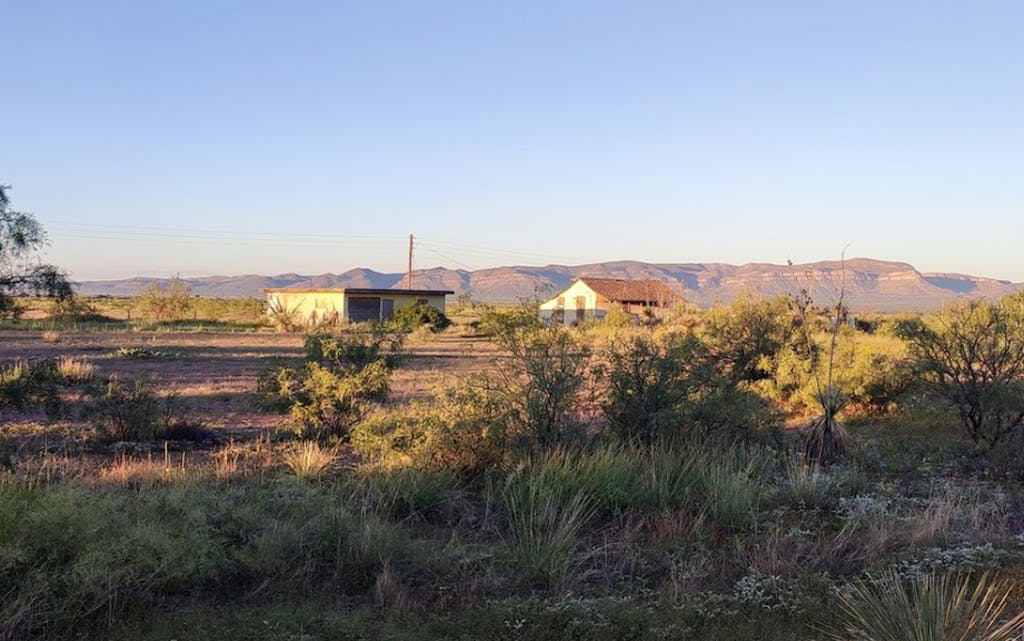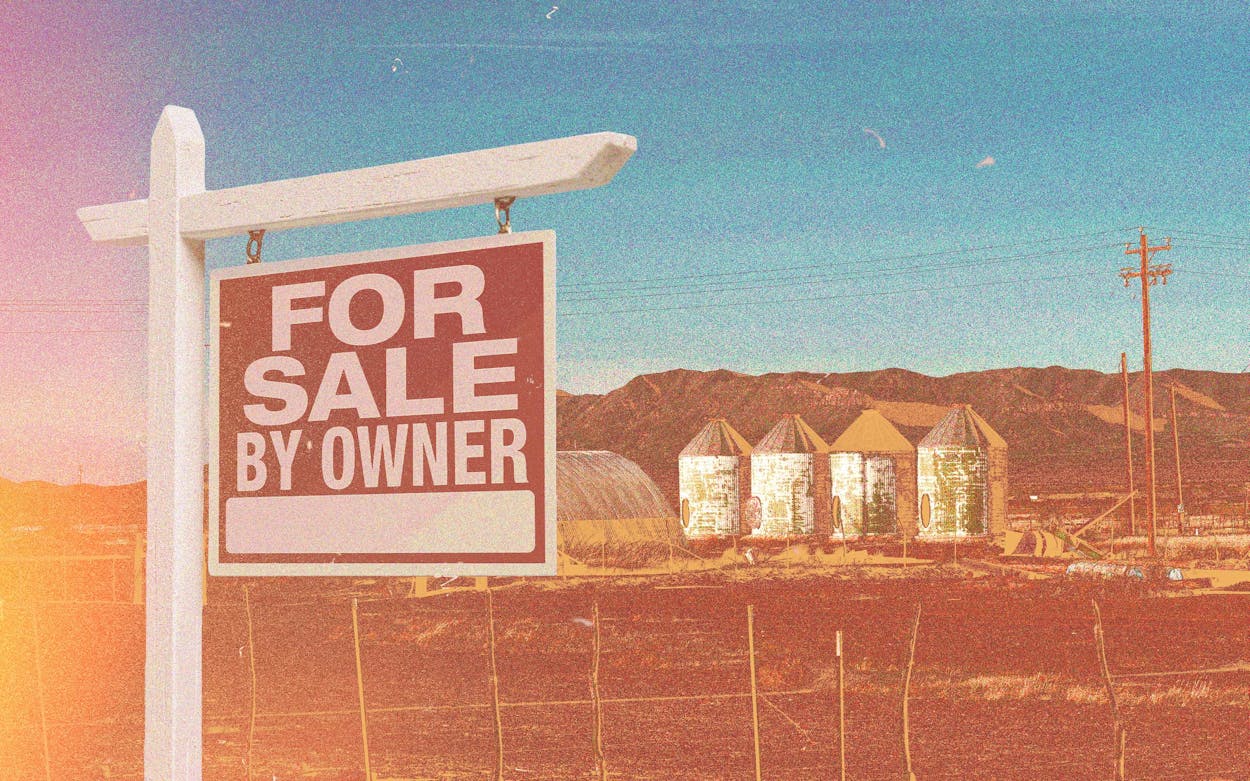Lobo, Texas, has gone through more transformations than Madonna. In the 1850s this lonely patch of West Texas, roughly halfway between Van Horn and Valentine on U.S. 90, was just some land on top of the recently discovered Van Horn Wells, the only water source in a hundred-mile radius. In the 1860s it was little more than a stop on the San Antonio–San Diego mail route, and in the 1880s it was a place where steam locomotives could refill their water tanks on their journey out to far West Texas. Lobo finally got a post office in 1907, and for decades in the mid-twentieth century it was a hub for the region’s thriving cotton farming community, though Lobo’s population never surpassed one hundred. In the 1980s the aquifer was just about pumped dry, and by 1991 Lobo was a ghost town. It spent the next decade completely empty, its remaining structures—a gas station, a motel, the grocery store, and a few abandoned houses—withering away under the harsh West Texas winds, until a handful of artists from Frankfurt, Germany, decided to buy it and make it their own.
“One of my friends drove by it in 1999, so [two years later, in 2001] we pooled our money and bought the town,” recalls Alexander Bardorff, one of Lobo’s Frankfurter owners, and the only one of the group who lives in the United States (he currently resides in Tucson, Arizona). Bardorff declined to say how much the group paid. The Germans fixed up Lobo as best they could, digging new wells, installing a bathhouse, and giving the remaining buildings new roofs and windows.
For twenty years these bohemians used Lobo as a way to get away from it all, hosting music and film festivals and inviting artists from all over the world. But since nobody lived on the property year-round, there was always a lot of upkeep. “You come back after a year and things have been destroyed, and then you have to start over again,” recalls Bardorff. The Germans were also plagued by the same worry that ails many a Texan landowner: are we going to run out of water this year? When borders were closed during the pandemic, Bardorff was the only owner who could even hope to visit. As time passed, the property became more and more difficult to maintain. “I’ll be seventy years old in a month, and all my other friends are in Germany, so we’re just running out of energy,” says Bardorff. Which means the ghost town is ready to go through its next great transformation, and any one of us could be the one to shepherd Lobo through it.

The Germans are ready to sell, and they’ve set up a handy informational website (which does not include an asking price). Bardorff also encourages all interested parties to email him at [email-hidden]. The Frankfurters do not wish to sell to just anyone. They know the area has recently been experiencing something of a boom, thanks to the growing popularity of Marfa, which is about sixty miles to the southeast, and Van Horn, fifteen miles to Lobo’s north, the town that houses Blue Origin’s launch site. “We don’t want to sell Lobo just to someone for the water rights, or as grazing land,” Bardorff says. The Frankfurters purchased Lobo with a vision, and they want its next owner or owners to be similarly quixotic. “We are not just trying to make a profit. We would like to find a group of people that want to do something interesting out there. Not necessarily what we did, but some idea.”
To entice the right kind of buyer, Bardorff and his fellow owners are hosting another event out in Lobo during Memorial Day weekend. They invite any and all to come out and hang, even if you have no interest in buying the property. “They can camp for free. They can use the bathhouse. Just enjoy being out in the desert, enjoy the atmosphere, enjoy the solitude,” Bardorff says. He made a point to tell me if any bands are interested in playing he’ll be bringing “a twelve-channel PA with monitors” down from Tucson. “All they have to do is plug in,” he says.
- More About:
- West Texas








